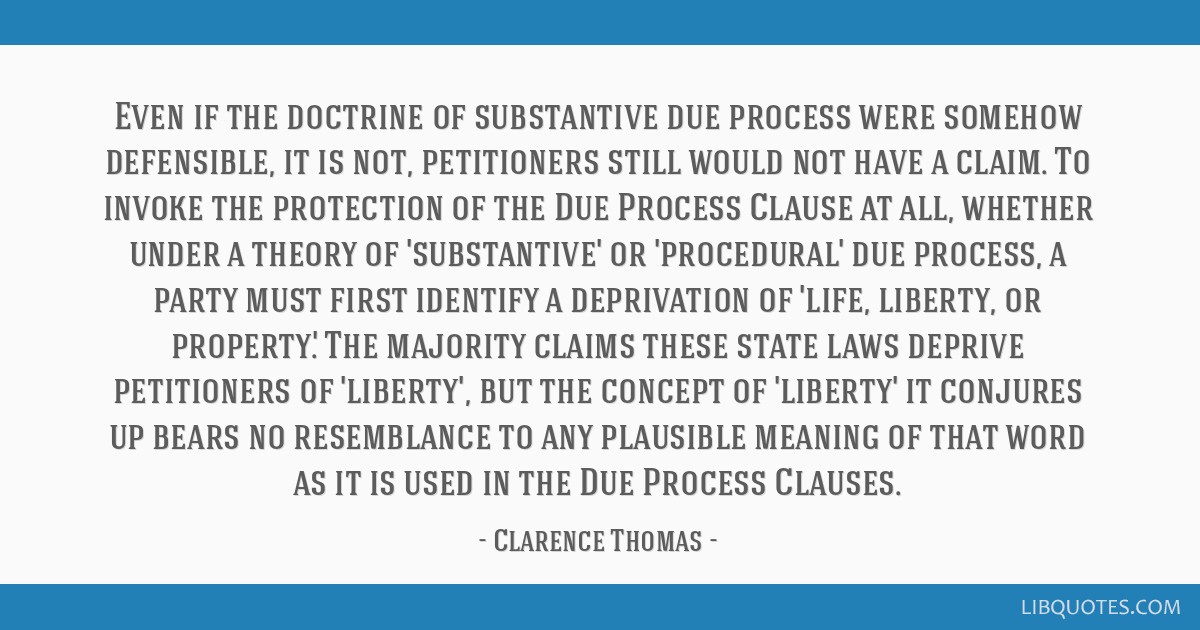Even if the doctrine of substantive due process were somehow defensible, it is not, petitioners still would not have a claim. To invoke the protection of the Due Process Clause at all, whether under a theory of 'substantive' or 'procedural' due process, a party must first identify a deprivation of 'life, liberty, or property'. The majority claims these state laws deprive petitioners of 'liberty', but the concept of 'liberty' it conjures up bears no resemblance to any plausible meaning of that word as it is used in the Due Process Clauses.
Obergefell v. Hodges (26 June 2015).























